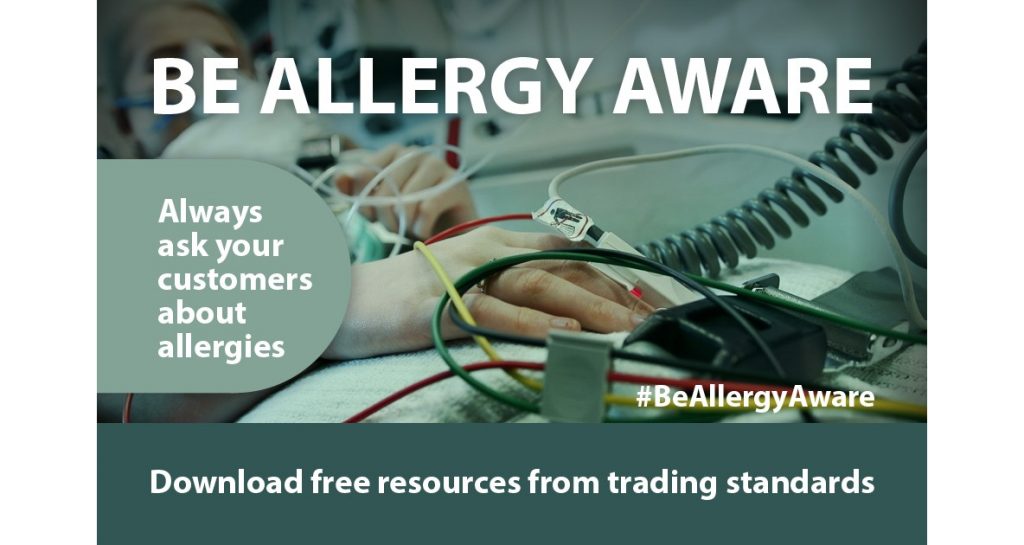New legislation on allergen labelling on food comes into force on 1 October and the Chartered Trading Standards Institute is hosting the effort to make sure retailers know their responsibilities
The Be Allergy Aware campaign was created by the Greater Gwent Food Group – a partnership between Blaenau Gwent, Caerphilly, Monmouthshire, Newport City and Torfaen councils – with the support of the Food Standards Agency (FSA).
It includes a handy factsheet for businesses, a series of posters in several languages reminding customers to notify staff of any allergies they may have, and an in-depth information video explaining the risks of improperly labelled food.
It urges businesses across the UK to “double-check, never guess” whether the food they sell contains ingredients that may be allergens, and whether their customers have any food allergies or intolerances.
The campaign arrives ahead of the implementation of ‘Natasha’s Law’ which will require all food businesses to provide full ingredient lists and allergen information on foods pre-packaged for direct sale.
The law is named after Natasha Ednan-Laperouse, a 15-year-old who died after suffering an allergic reaction to a baguette that contained sesame seeds but which did not declare allergens on its packaging.
The 14 allergens that must be declared by law when used as ingredients are:
- Celery
- Cereals containing gluten
- Crustaceans
- Eggs
- Fish
- Lupin
- Milk
- Molluscs
- Mustard
- Nuts
- Peanuts
- Sesame seeds
- Soya
- Sulphur dioxide
Dilys Harris, senior trading standards officer at Caerphilly County Borough Council, said: “We are proud to launch this valuable resource on food allergens which has been produced with the support of the FSA and Trading Standards Wales.
“It will be used by local authorities across Wales, England and Northern Ireland and is suitable for food businesses, food law enforcement officers and educational establishments.”
 Talking Retail Grocery and product news for independent retailers
Talking Retail Grocery and product news for independent retailers






